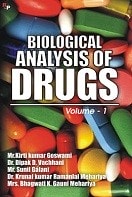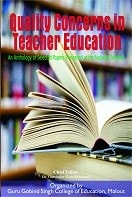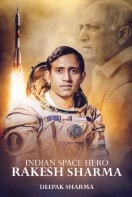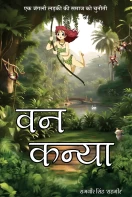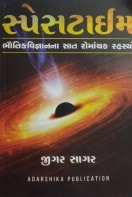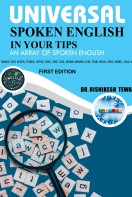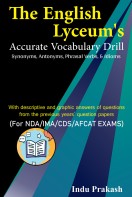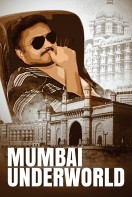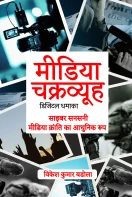The purpose of this book is to give rise to a critical assessment through the presentation of holistic approach to different aspects of the disability in the society. Efforts have been made to facilitate free discussions and observations, being expressed by various social scientists only in a vernacular language. The present book is organized in twenty one chapters and each chapter is devoted to one theme and presents an ensemble of contributions from which the readers will be able to observe the diversity ranging from personal testimony to communications of a scientific character. Each chapter highlights the problems being faced due to the disability.
The book highlights various types of disabilities being faced by the artists, technicians and workers in the film fraternity particularly in Hindi films popularly known as Bollywood film world. Analysis of representation of disability in Indian vi cinema is considered to be a barometer of the perception of the society and attitude in a broader sense regarding the inclusion or exclusion of differently-abled persons. It highlights that role of education in eradicating the gender disability and creating employment opportunities in the rural women of scheduled caste families. It appears that adequate improvement in the education and economic status of women over the years however gender-based discrimination still exists in the rural women. The book explores the impact of disability, gender and intersection of HIV in case of women. The discrimination and stigma suffered by disabled women suffering with HIV/AIDS infection is both psychological and physical trauma facing social drop out being branded as promiscuous and vectors of the disease. The marginalized groups facing acute vulnerability to HIV/AIDS are women, children, sex workers, homosexuals, drug users injecting with common needle and so on. Whereas disabled women are prone to this abuse as they are unable to protect themselves due to disability. The barriers and opportunities in the State of Jammu and Kashmir pertaining to educational system focusing status, challenges, responses and prospects with regard to disability and girls‘ education. Challenges before the state government in J&K is a herculean task in providing quality education to the disabled as per their needs, devising meaningful curriculum and evaluation techniques as per the changing times. Role model study for empowerment of women with disability in the rural areas of Noida, Uttar Pradesh revealed huge gaps in terms of deficient educational services, negligible health and hygiene care, awareness among the community services inclusion for women with or without disability in the specified areas. The adaptation in terms of improvement and modification in the curriculum, infrastructure, teaching methods for children with special needs particularly in the government schools of Chandigarh revealed that most of the Government Schools are lacking in adaptive devices, trained staff, learning material in providing quality education to children with special needs however, efforts have been made to overcome these hurdles. The role of gender inequalities and discrimination in sports arena is emphasizing varied opportunities available to each gender associated with different sports offering divergent resources for men and women participants. Emphasis on gender stereotype involving physical fitness has been placed in case of male – female competitors‘. The issues and challenges faced by the women with disability belonging to the lower strata of the society in terms of barriers and discrimination at different stages in their life time explores the current dimensions of disability in India by women both physical and mental dimensions. The book also highlights the stories of disabled characters under mythological history which have never been depicted in any form both as gods and mortals. Be it epics or other vii mythological text, depiction of disabled characters are always shown as the weaker companion. Less than normal abilities are associated with past karma arising out of misadventures and immoral acts. Education plays an important role in developing the human character in a way to benefit the society particularly to empower the women and the disabled irrespective of gender selection. Education for girls in India is a herculean task to be worked upon as many initiatives so far taken by the government agencies, there implementation is still debatable. It is a fact that people with disabilities had difficulties in accessing the humanitarian assistance due to circumstantial difficulties which involved physical oppression, violence, abuse and exploitation under the garb of protection. Children with disabilities are exposed to the higher risk of violence lacking in basic services related to health and education. The status, problems and remedial measures for the disabled women revealed that women with disabilities in general face Social restrictions levied by the society due to inadequate and narrow mindedness generating negative attitudes towards girls and women both in terms of sexism- gender discrimination and being disabled. Disabled women and girls are underrated due to lack of education, social acceptability and self-esteem. An analysis on disability rights in India as per the UN convention revealed that Universal declaration on Human Rights and fundamental freedom for all without any distinction was the motive of international brotherhood convention. The convention against cruelty, torture, punishment under specific human rights to freedom is significant for millions of physically challenged people world over who are institutionalized as a part of the treaty. Despite international standards and the implementations of training and employment legislation policies and practices, physically challenged persons especially women, youth and those living in rural areas remained proportionately uneducated, untrained, unemployed due to lack of facilities, poverty and awareness. As per the recommendations of the National Disability Council that the nodal ministries and other government agencies especially those related to women and child welfare must maintain the data sheet based on gender segregation and help destitute women with disabilities.
Lastly, it has been noted that over the past several decades the movement for disability rights has made commendable strides in recognizing the human rights and freedom of expression by the people with disabilities. Various articles present in this book have shown tremendous transformation of formally accepted disabilities from Medical Model to Socially accepted Model. The medical model of disability was a physical defect cured through the treatments whereas the social model focused on modifying the constraints through viii participation of people with disabilities in the society. Women with disabilities in general faced deplorable conditions all over the world unless they proved their worth in the society.
Foundation For Developmental Research(FDR) has taken initiative to publish this book. FDR conducts empirical, analytical, descriptive, innovative research studies, training & awareness programmes.FDR disseminates data-based results through articles/papers, books, booklets, monographs as well as offer consultancy and guidance for research projects.
FDR has an on going publication programme. FDR is interested to collaborate with companies, institutions, organizations, NGOs, publishers, researchers/ writers for the sponsored research projects and studies. FDR also offers services for issue-based awareness campaigns, field-based surveys, primary and secondary data compilation, analysis, documentation and publication.
FOUNDATION FOR DEVELOPMENTAL RESEARCH (FDR)
E-mail: fdrppsingh@gmail.com & fdrresearch801@gmail.com
Website: www.fdrresearch.org
Phone: 0172-2713069, (M) 9872894422 & 7589077820
ABOUT EDITORS
Dr. Dazy Zarabi is Ph.D in Sociology. At present, she is Chairperson, Department of Community Education & Disability Studies, Panjab University, Chandigarh. She has 27 years’ experience in Research and Extension. She was programme coordinator of UNFPA Programme of Population and Development Education. She has participated and also organized various State, National and International Conferences, Workshops and Seminars in various thrust areas of Population and Development Education Programme. Numbers of Research publications are on her credit particularly in the area of Population and Development Education.
Dr Kuldip Kaur is Ph.D in Education. She is former Director-General of CRRID (National level research organization). She served CRRID 32 years as faculty member. She has ten books to her credit and has published more than 150 research papers in National and International journals. She has also completed nearly 50 sponsored research projects in social sciences. Her research work focuses empirical and analytical studies on minorities, women and children, SC/ST and deprived section of society. At present, she is Director, Research of Foundation for Developmental Research (NGO)


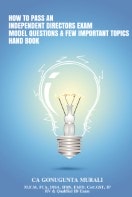
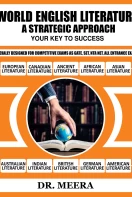


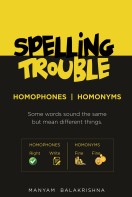
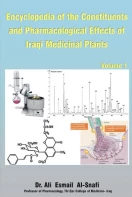

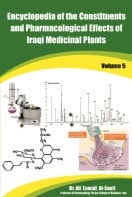

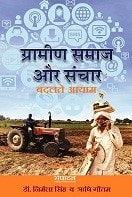

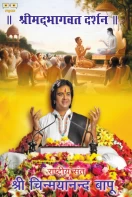

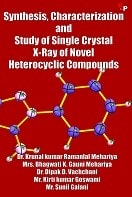
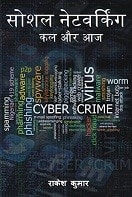
.jpg)

